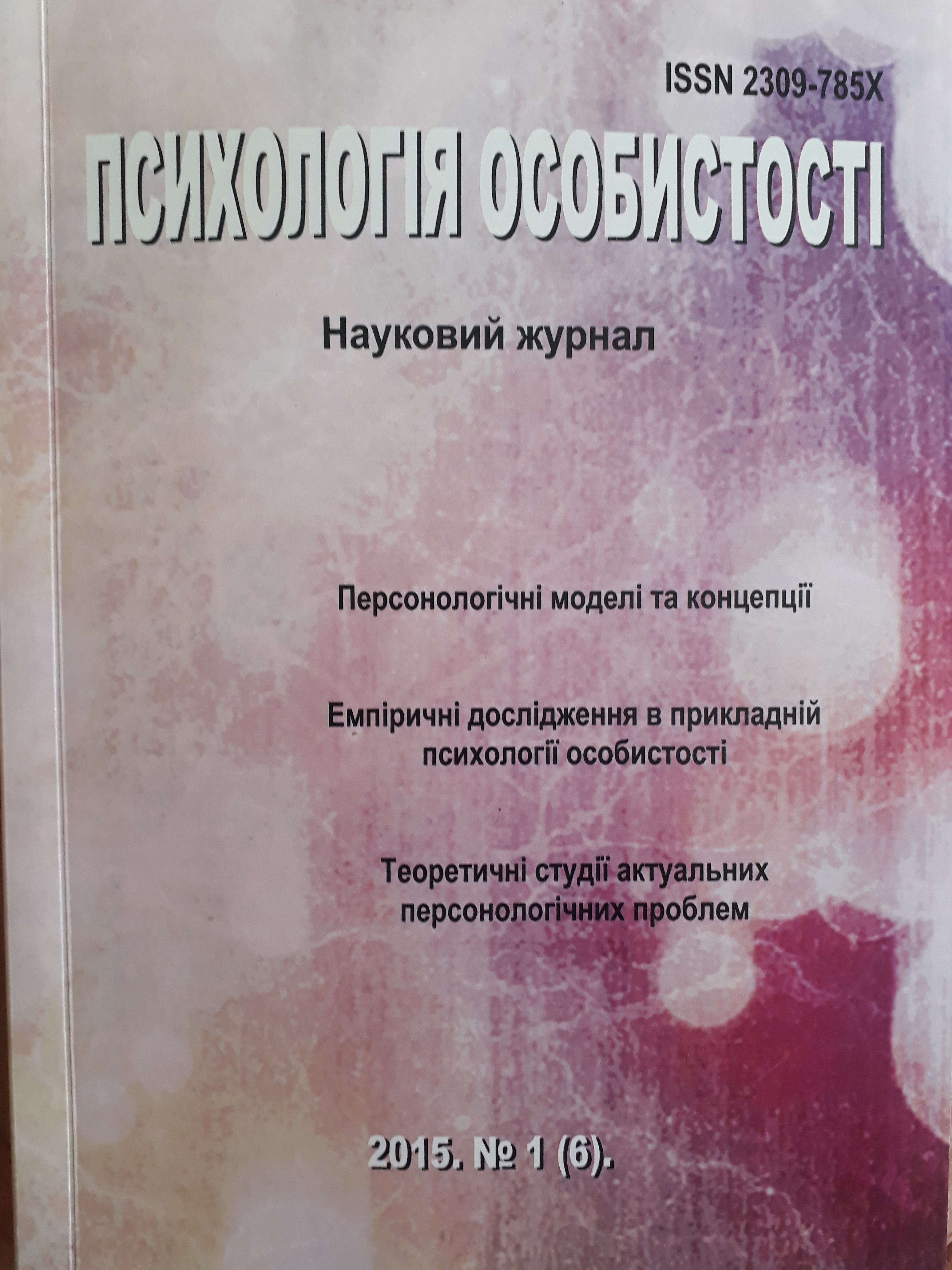ПСИХОЛОГІЧНІ РАКУРСИ ОБГРУНТУВАННЯ ТА АНАЛІЗУ ПОНЯТТЯ "РЕЛІГІЙНА ДИСКУРСИВНА ОСОБИСТІСТЬ"
DOI:
https://doi.org/10.15330/ps.6.1.99-107Анотація
У статті обґрунтовується поняття "релігійної дискурсивної особистості" через послідовний теоретичний аналіз трьох основних його семантичних складників – "релігійності", "особистості", "дискурсу" та виокремлення їх психологічних аспектів. Зокрема, пропонується робоче визначення дискурсу із зазначеними аспектами: з одного боку, когнітивно-мовленнєвої активності у конкретній соціально-комунікативній ситуації, що передбачає рецепцію, передавання та/або творення (співтворення) певних текстів у певному їх контексті; з іншого боку – процесу і результату мотиваційно-смислового вибору (сукупності таких виборів) кожного його суб’єкта у поточній життєвій ситуації. На основі проведеного теоретичного аналізу й узагальнення його результатів релігійна дискурсивна особистість розглядається як людина, котра вірить у Бога або, щонайменше, внутрішньо приймає ідею Його буття і відповідним чином розуміє (як реципієнт) та/або конструює (як автор) релігійні дискурси, а вже через них – і саму себе, весь навколишній світ чи окремі його складники. Обґрунтовується, що релігійна дискурсивна особистість – це не просто носій колективного релігійного досвіду, зокрема в етно-національних його форматах (як мовна особистість), а активний індивідуальний співАвтор, що динамічно відтворює, конструює і презентує власну мовно-релігійну картину світу.
In the article the concept of a "religious discursive personality" through consistent theoretical analysis of its three main semantic components ("religiosity", "personality", "discourse") is substantiated and their psychological aspects are singled out. In particular, the author proposes a working definition of discourse through distinguishing the following aspects: on one hand, a cognitive-verbal activity in a particular social and communicative situation, involving the reception, transferring and / or creation (co-creation) of certain texts in their particular context; and on the other hand, the process and result of motivational-semantic choice (the set of such choices) of each individual in the current life situation. On the basis of the theoretical analysis and the generalization of its results a religious discursive personality is considered to be a person who believes in God, or at least inwardly accepts the idea of his entity and properly comprehends (as a recipient) and / or constructs (as an author) various religious discourses, and through them a person comprehends himself/herself, the surrounding world or some of its components. It is substantiated that a religious discursive personality is not just the one that has a collective religious experience, in particular in its ethno-national spheres (as a linguistic personality does), but it is treated as an active individual co-author, that dynamically recreates, constructs and represents his/her own linguistic and religious image of the world.

